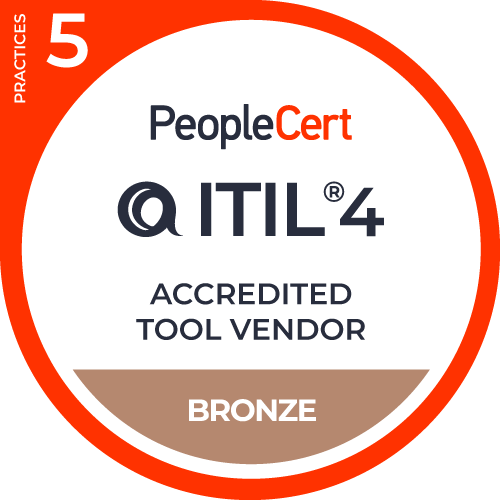In surviving the present economic climate, many businesses of all sizes and spanning all industries are seeking to drive efficiency in their operations while reducing costs. Being increasingly IT-reliant, businesses are turning to at least one IT management solution or software for the optimization of their service enterprise.
Challenging as these business goals already are, customer satisfaction is becoming more critical than ever before, and is equally keeping enterprise decision makers on their toes.
With customer loyalty on the line, businesses have to carefully consider their options. Customer service software can be a boon to many organizations' service delivery strategies. Others might opt for a service desk software solution that can streamline the otherwise complex service processes that render customer issues responding inefficient
As with any other IT management solution, help desk tools entail knowing how they can affect customer relationship. Determining the impact of service desk software to the overall customer care program is just as vital.
Essentially, sound service desk software helps streamline the customer incident reporting process. A single tool enables customer service teams – who are tasked to listen and respond to customer sentiments – to define their workflows, populate a knowledge base for referral purposes, create custom reports and ultimately find ease in solving customer incidents. As end result, companies are able to significantly reduce their IT-related costs, enhance customer satisfaction and improve the responsiveness of their business operations.
Embarking on help desk software to improve the technical support aspect of an enterprise is an intelligent decision. However, off-the-shelf solutions that only apply to the present conditions cannot possibly achieve desired results consistently.
The ultimate challenge facing the future of IT help desk is its capability to adapt to the fast-paced technological change while giving customers a seamless, comfortable and reliable support environment that defines a highly customer-centric approach. In this regard, help desk should be implemented in ways that they are fit for change and growth.
The rapid rise of IT consumerization, user mobility, and security or compliance regulations confront the future of standard enterprise help desk. In this respect, help desk software solutions are seen to move towards an operationally focused overall management that focuses on the core competencies of customer care. With customers becoming bolder and technology-savvier, raising the bar in this facet is bound to follow suit.
Changes in technologies themselves are driving many of the changes in the help desk client community. Improved service desk software features – to concentrate more on the strategic solutions to higher-level problems – are seen to potentially change, if not revolutionize the future of IT support. Help desk and IT in general are deemed to give more emphasis to becoming "customer savvy" so they are able to embrace the increasing pressures in the customer service arena.
Not to be ignored is the essence of communication flow between an enterprise and IT in implementing the right service desk solution. Through this, the IT service desk is able to shift from being a mere tactical strategy to becoming an essential strategic function that creates business value and take a dynamic part in ensuring an organization’s success at present and beyond.

